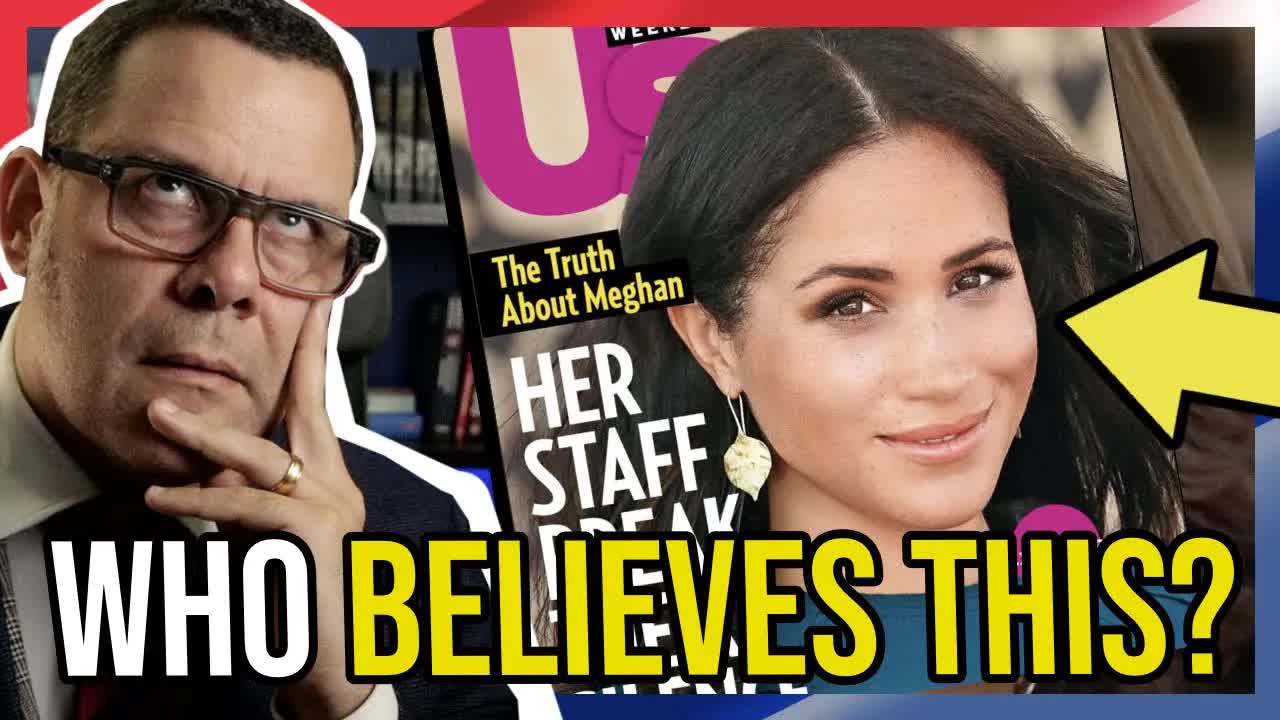In the latest twist in the ongoing saga surrounding Meghan Markle and Prince Harry, a recent article from The Hollywood Reporter has stirred up quite the controversy.
The publication labeled Meghan as “Duchess Difficult,” suggesting that her behavior has significantly contributed to a high turnover rate among staff at their company.
This claim has reignited discussions about the couple’s reputation, prompting them to respond through US Weekly in what many are calling a cringe-worthy rebuttal.
The US Weekly piece aimed to counter the claims made by The Hollywood Reporter, which cited multiple sources describing Meghan’s management style as dictatorial.
The article included quotes from former staffers who recounted experiences that painted a troubling picture of the Duchess, with one source alleging she can reduce grown men to tears.
The Hollywood Reporter backed its assertions with twelve confirmed sources, making the allegations hard to dismiss.
In a swift response, US Weekly reported that a current employee took to Instagram to vehemently deny these accusations.
However, the identity of this so-called current employee remains shrouded in mystery, raising questions about the credibility of their defense.
Without a name or even an Instagram handle, it’s difficult to ascertain the authenticity of this support for Meghan and Harry.
Adding to the confusion, the anonymous commenter described the claims against Meghan as “wildly inaccurate” and damaging.
Yet, this vague defense seems to lack substance, leading many to speculate whether it was a genuine employee or perhaps just another attempt at damage control.
Critics have pointed out that without verifiable identities, such statements feel more like fairy tales than credible testimonies.
The article also featured comments from former staffers, but again, none provided their names or specific details.
One anonymous team member claimed their experience working for the couple was an honor, while another lamented the treatment they received.
However, without concrete evidence, these statements fall flat, leaving readers questioning their validity.
US Weekly attempted to bolster their article with insights from Ben Browning, the former head of content for the Sussexes.
Browning dismissed the negative narratives as untrue, but his departure raises eyebrows.
Why did he leave?
Such questions linger in the air, casting doubt on the stability of the couple’s inner circle.
Ashley Hansen, a former Global Press Secretary for the Duke and Duchess, offered a more personal anecdote.
She described how supportive her bosses were during her recovery from surgery, likening their concern to that of a parent’s.
While this may seem heartwarming, some critics argue that such sentiments come off as excessive flattery, almost bordering on bootlicking.
This begs the question: why do these accounts come from anonymous sources?
If employees genuinely feel positively about Meghan and Harry, wouldn’t they want to share their experiences openly?
The lack of identifiable voices in this narrative only fuels skepticism about the authenticity of the claims being made.
Current and former employees have expressed disbelief over the negative portrayal of their workplace, suggesting that disgruntled ex-staffers might be behind the allegations.
But the reliance on anonymous quotes leaves a gap in the narrative, making it difficult to trust these defenses.
As the media frenzy continues, it’s evident that Meghan and Harry are facing an uphill battle in repairing their public image.
The attempts to counter the negative press have been met with skepticism, and many are left wondering if the couple can effectively navigate this storm.
The saga of Meghan and Harry is far from over, and as more stories emerge, public interest only grows.
Whether they can reclaim their narrative remains to be seen, but one thing is certain: the scrutiny will continue.

